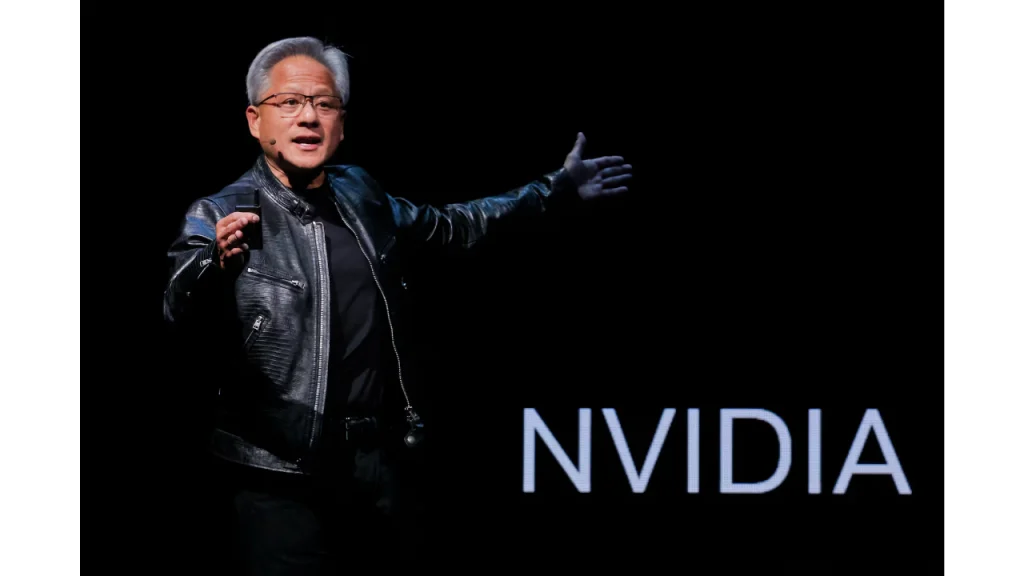- Nvidia to build seven AI supercomputers for the U.S. Energy Department; shares closed up ~5%.
- Huang says access to China’s developers remains critical for Nvidia’s long-term competitiveness.
What happened: Supercomputers, telecom tie-ups—and the China question
Speaking in Washington on 28 Oct, Huang said Nvidia will build seven AI supercomputers for the U.S. Energy Department, including a massive Oracle system using Blackwell chips. He also announced tie-ups spanning telecoms (Nokia), mobility (Uber, Stellantis) and logistics (Palantir). Nvidia’s stock finished up 5% on the day.
At the same time, Huang argued the company needs to remain engaged with China’s AI developer base—even as export controls and the fate of China-specific parts like H20 continue to swing with U.S. policy.
Also read: Zain KSA and Cisco team up to boost Saudi AI infrastructure
Also read: Cisco joins Saudi AI drive
Why it’s important
Huang’s Washington pitch highlights a two-track strategy: deepen U.S. manufacturing and government work (supercomputers, federal clients), while seeking a route back into China, which he has framed as a ~$50bn opportunity needed to fund R&D.
The balance is uncertain. U.S. rules have repeatedly shifted since 2022, affecting shipments of advanced accelerators and China-compliant variants; Beijing has also tightened customs checks. Investors will watch whether policy stabilises enough for Nvidia’s China sales to resume at scale without undermining U.S. national-security goals.

